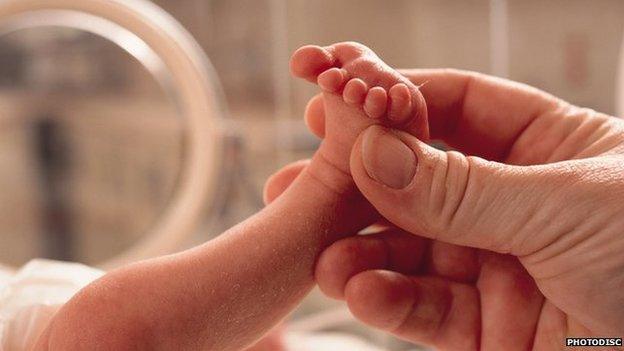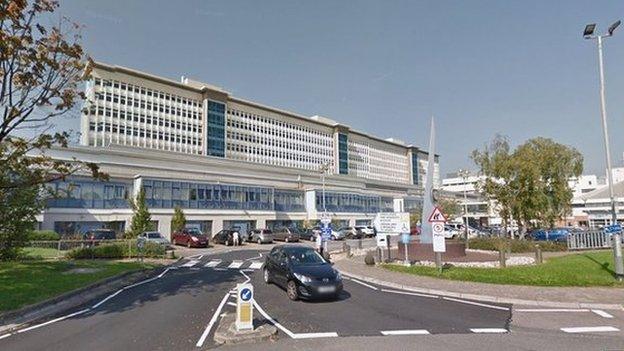Cardiff neonatal unit infection 'resistant' to treatment
- Published

Bacterial infections which have closed a neonatal unit in Cardiff after 12 babies tested positive are difficult to treat, an expert has said.
New admissions to the unit at University Hospital of Wales (UHW) stopped on Thursday because of a "cluster of infections".
Cardiff and Vale Health Board said the babies' conditions were improving.
But microbiologist Prof Hugh Pennington told BBC Radio Wales it is hard to tell where the bug came from.
"Usually they come into a unit one way or another," he said.
"They might have come in via a person or they are common in the environment as well.
"Very often we can't trace the place where they came in. All we know is that they are challenging places like neo-natal care units and intensive care units all the time.
"For most people these are quite harmless so we don't need to bother about them. It's when they get into these units is where they can cause these outbreaks."
Prevention control measures have been put in place to prevent the infections - Acinetobacter baumanii, external and Enterobacter, external - spreading.
Prof Pennington, an emeritus professor of bacteriology at Aberdeen, added: "They are difficult to treat in the sense they are resistant to antibiotics by their very nature, not because they've developed resistance."
There are 15 babies at the unit, which has 30 cots for intensive care, high dependency and special care.
Other babies who need neonatal care will be referred to other hospitals.

- Published28 August 2015

- Published27 August 2015
